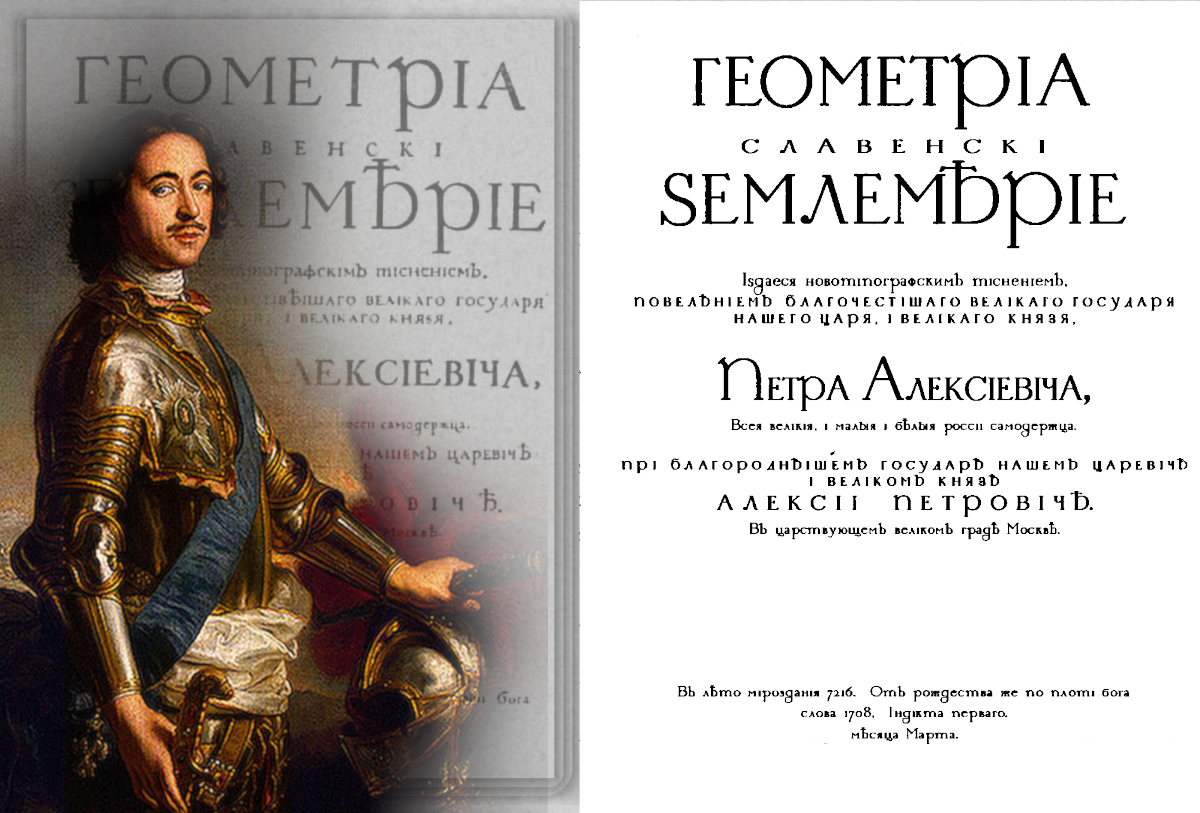
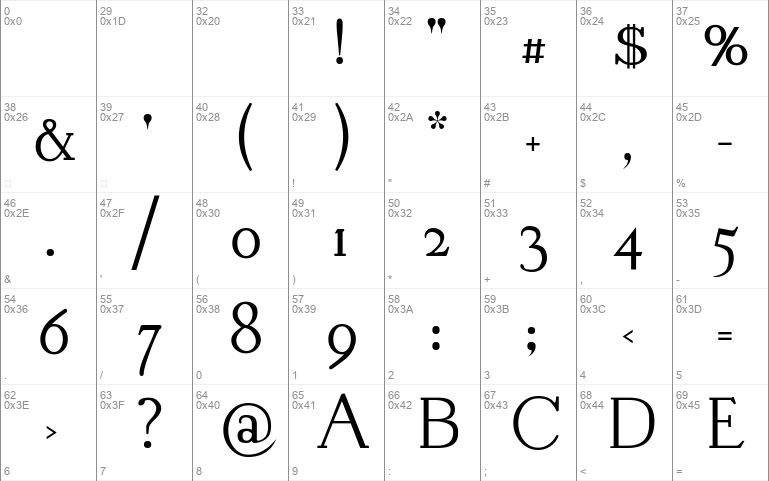
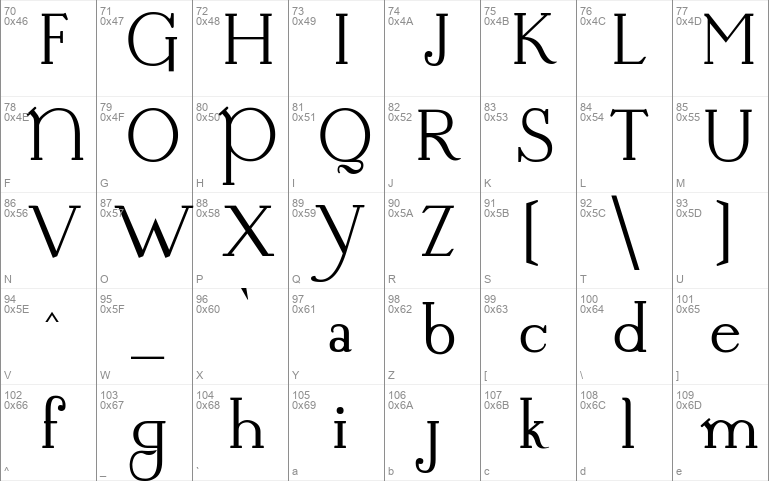
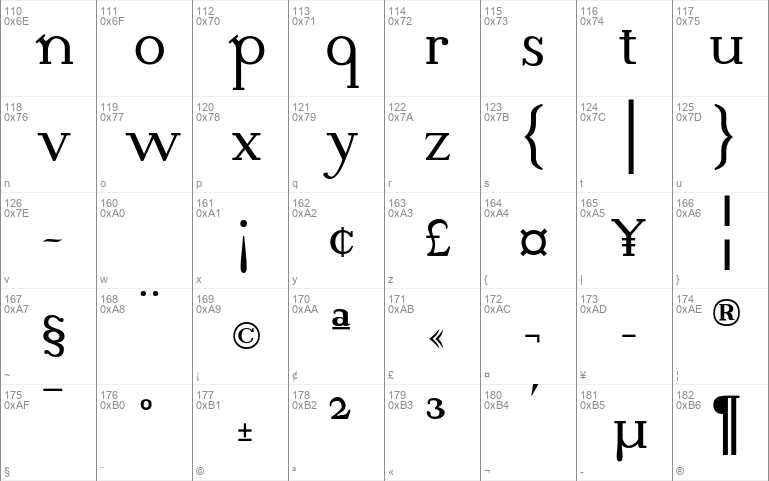
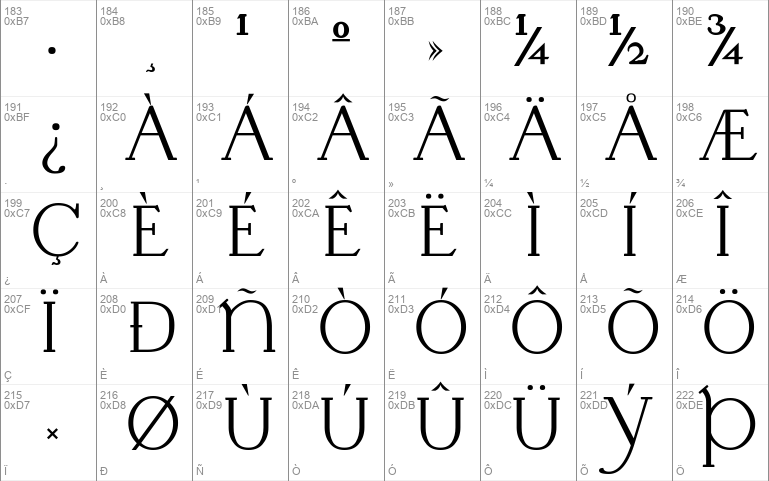
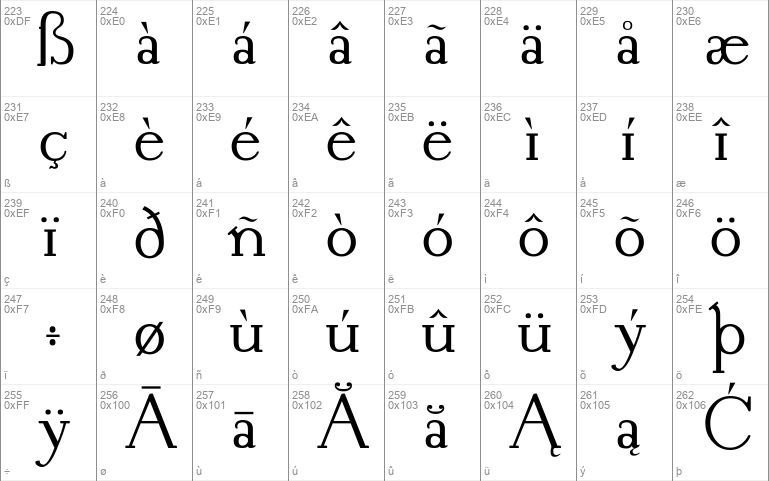
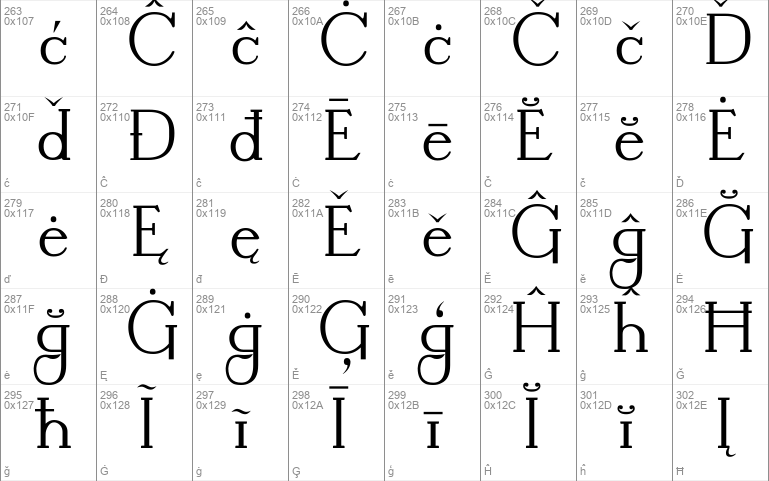
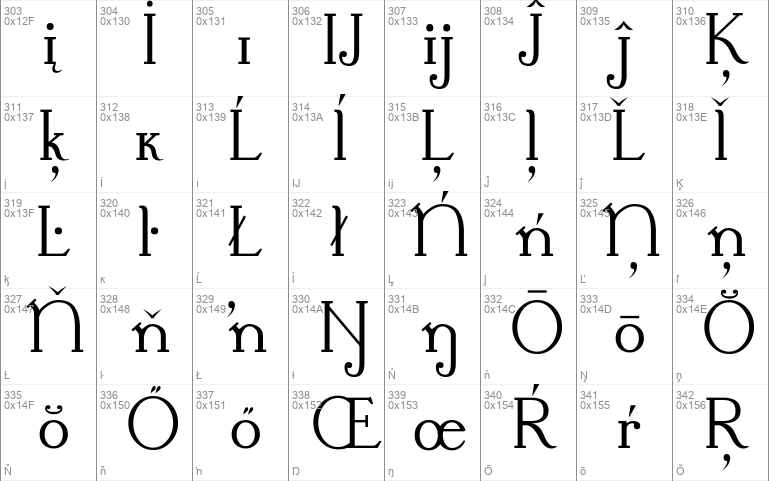
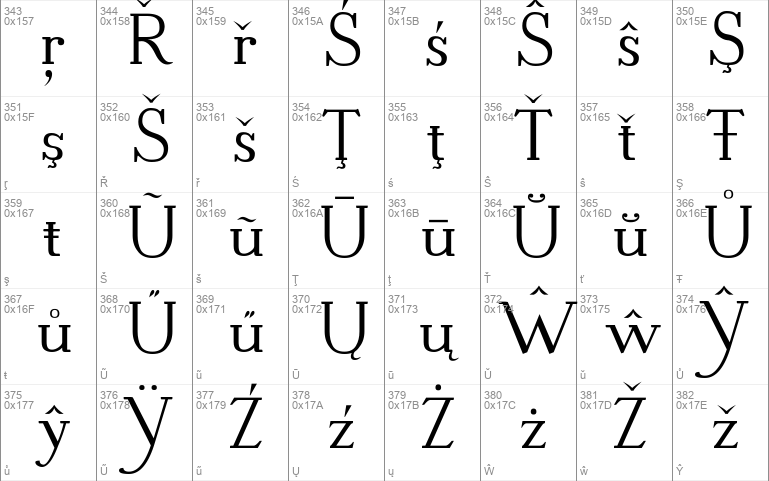
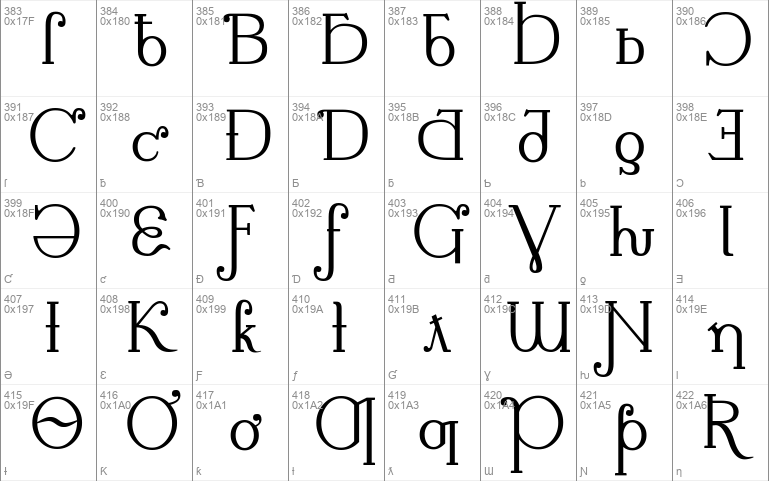
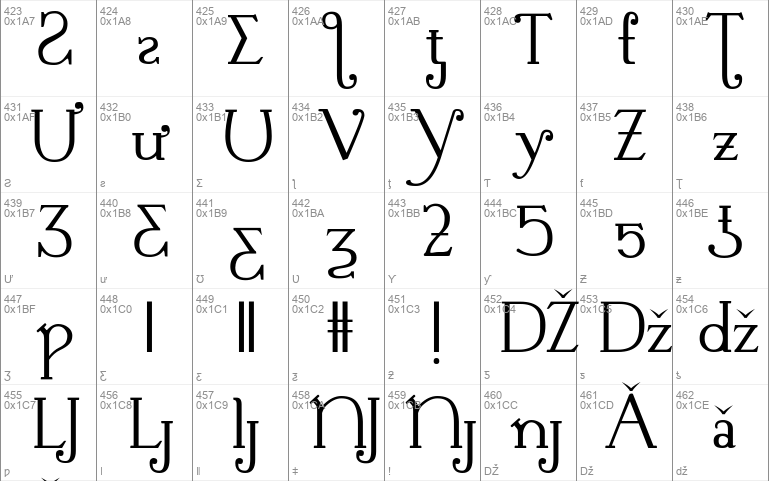
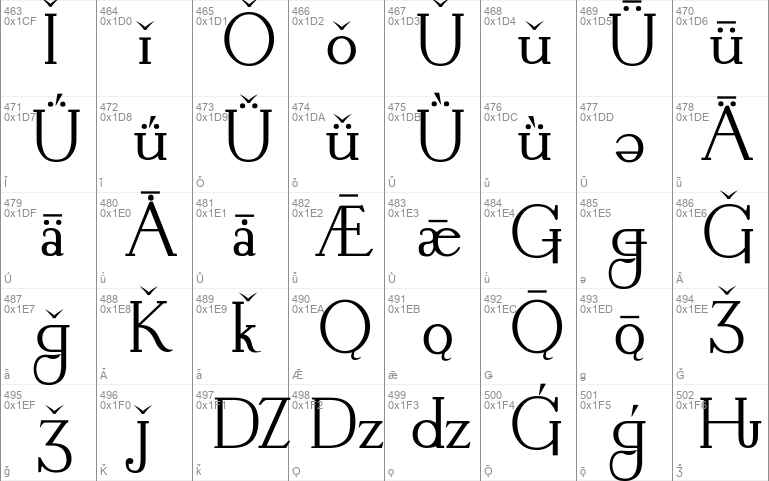
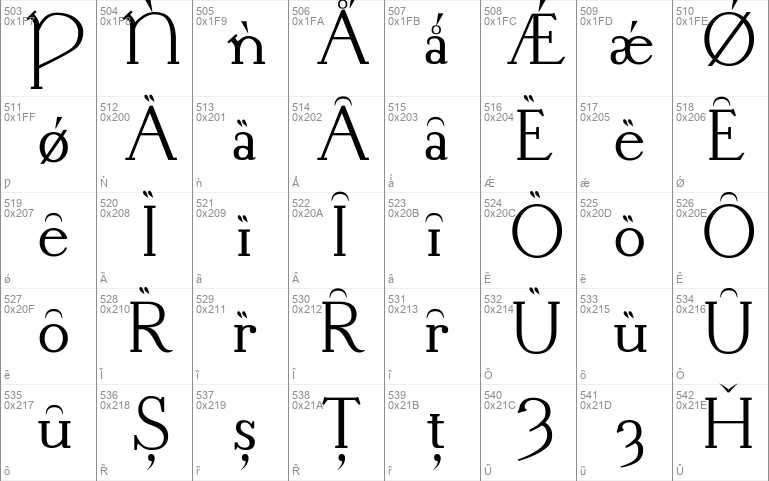
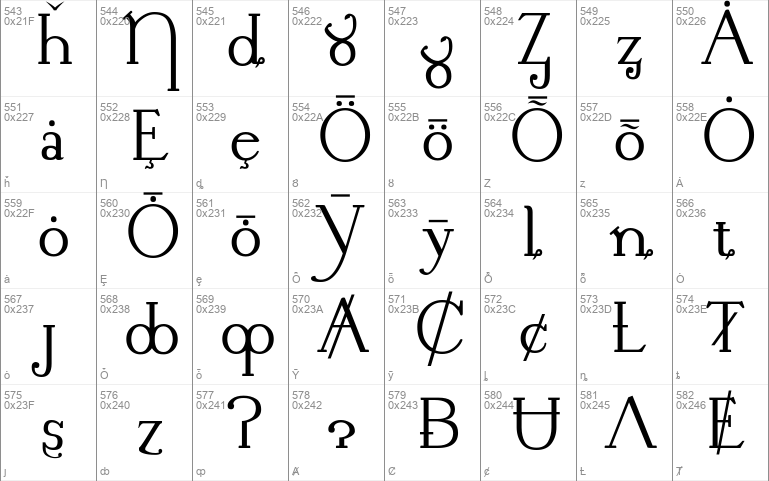
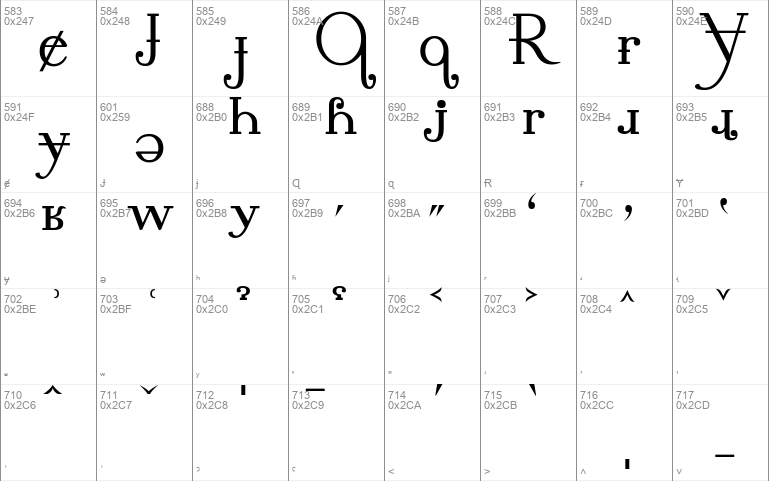
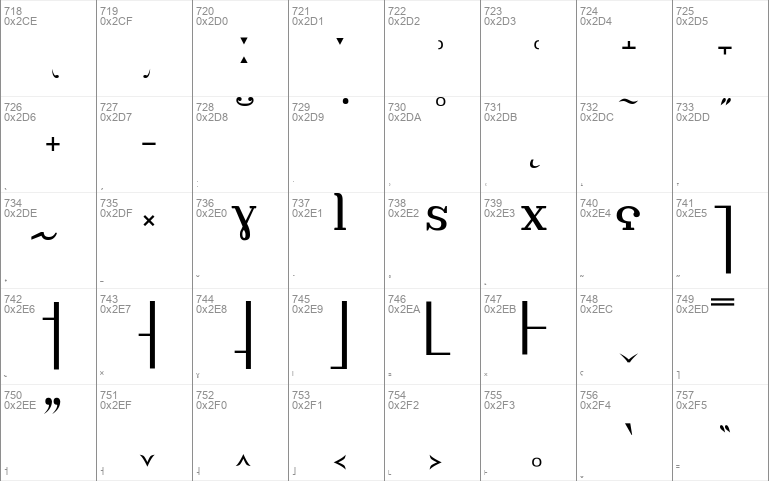
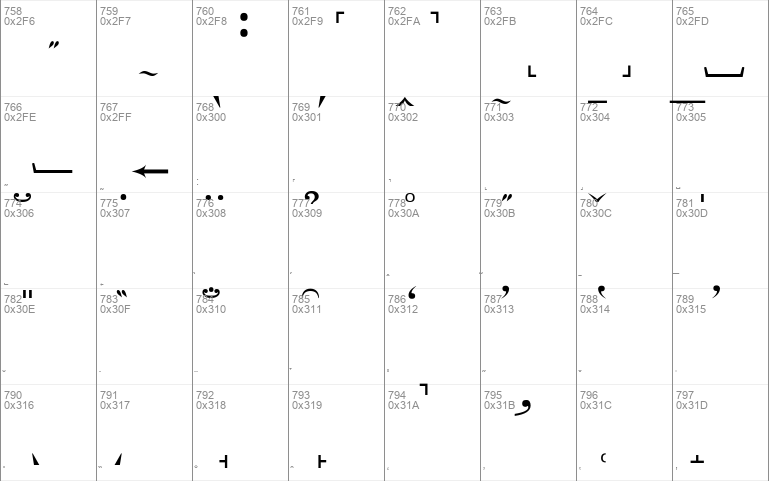
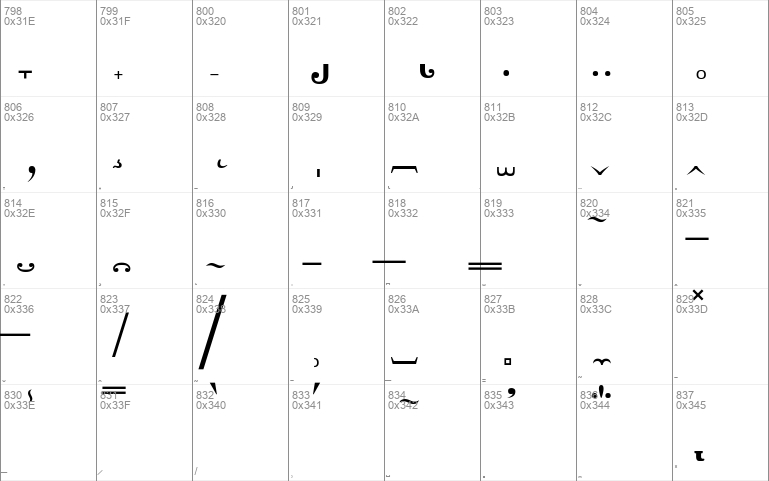
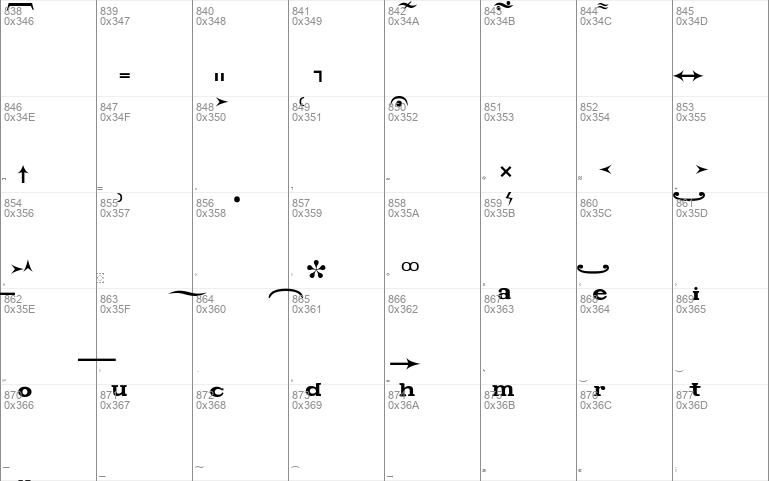
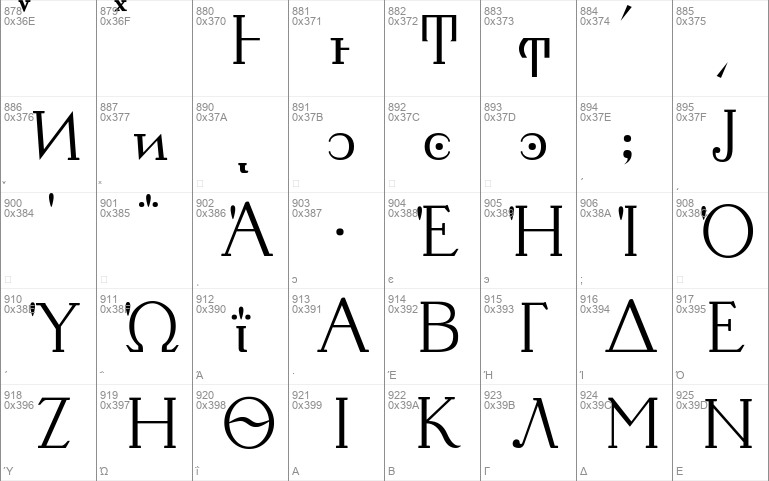
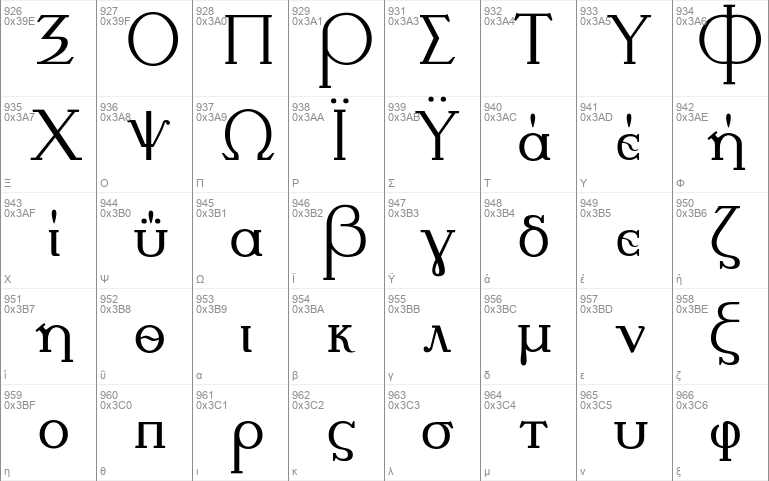
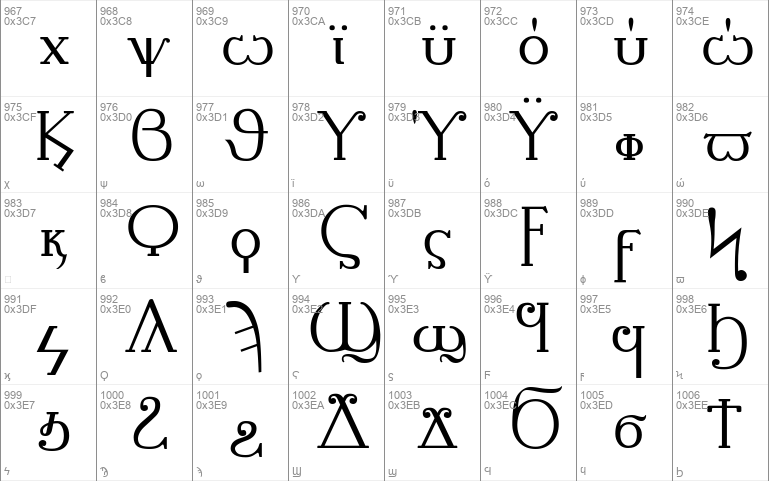
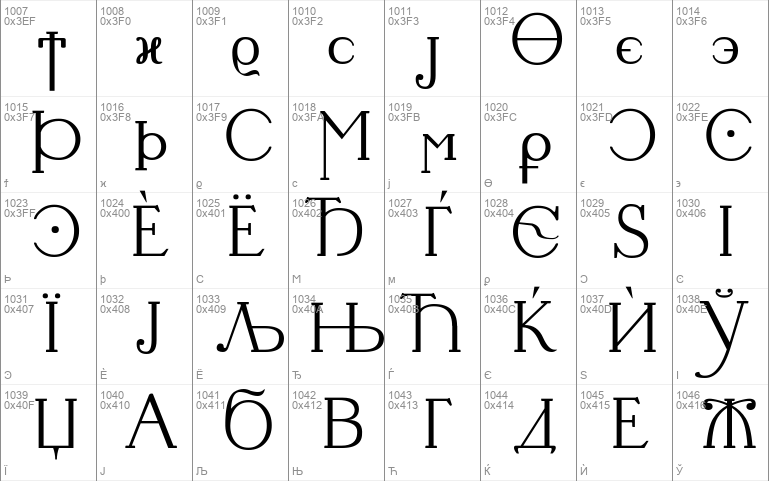
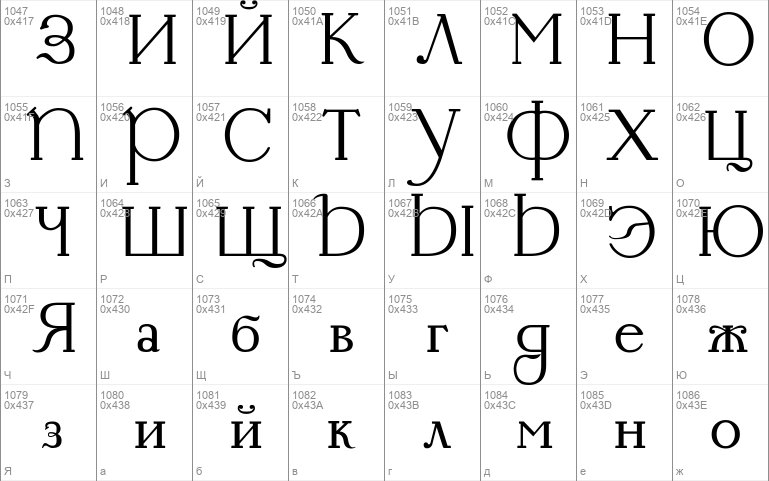
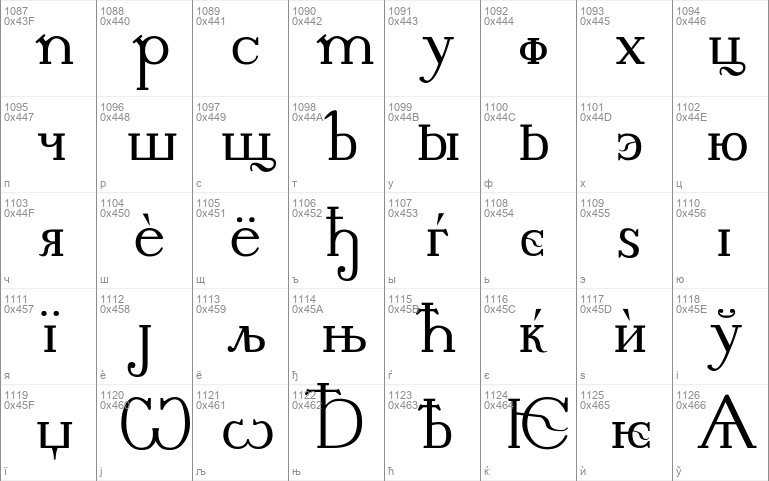
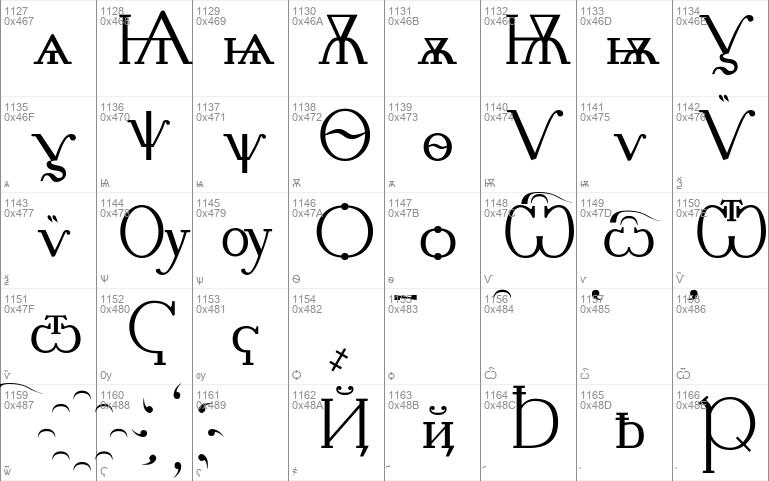
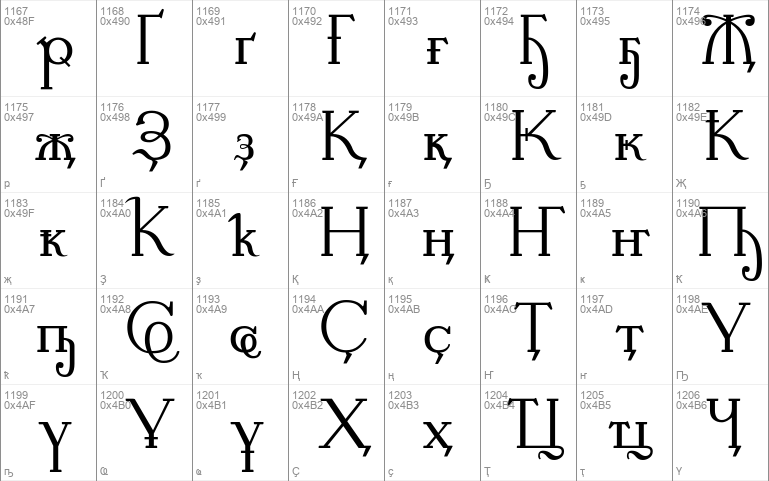
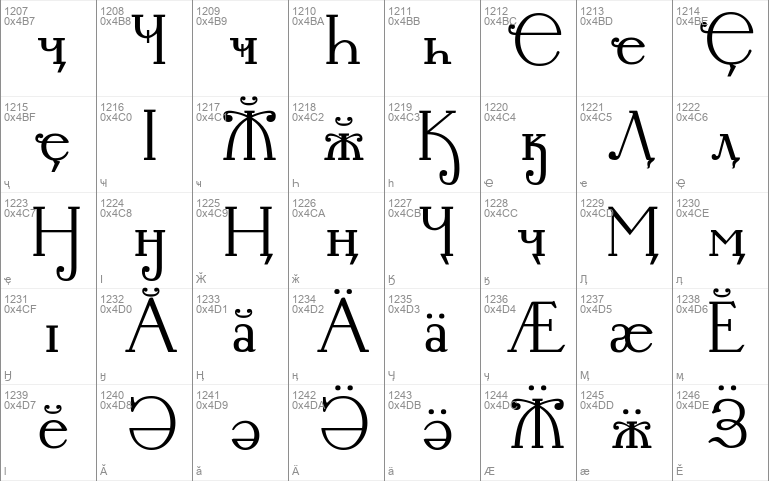
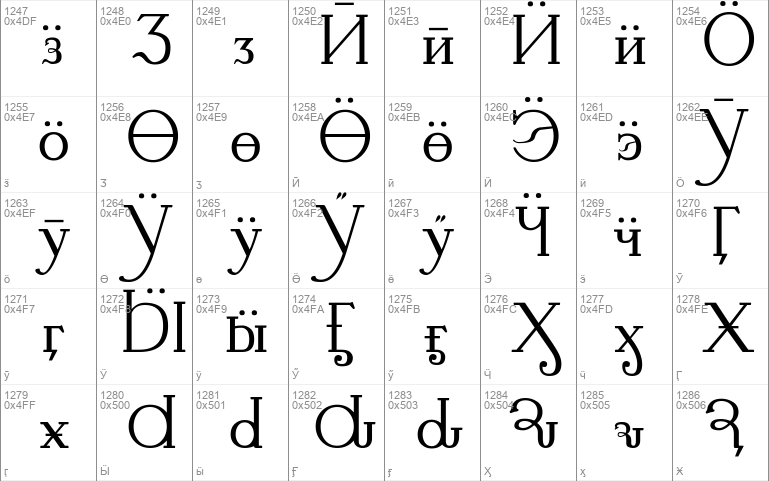
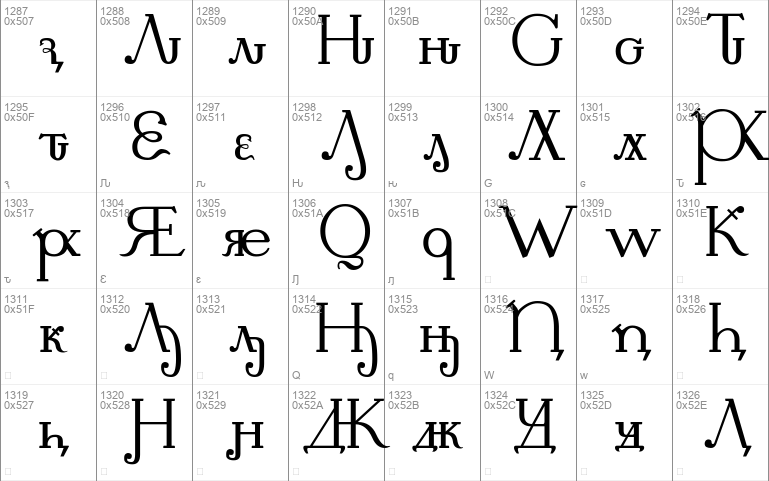
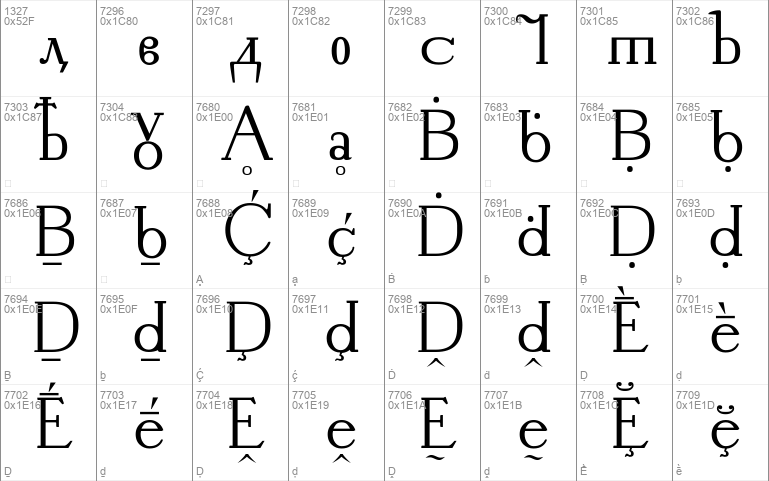
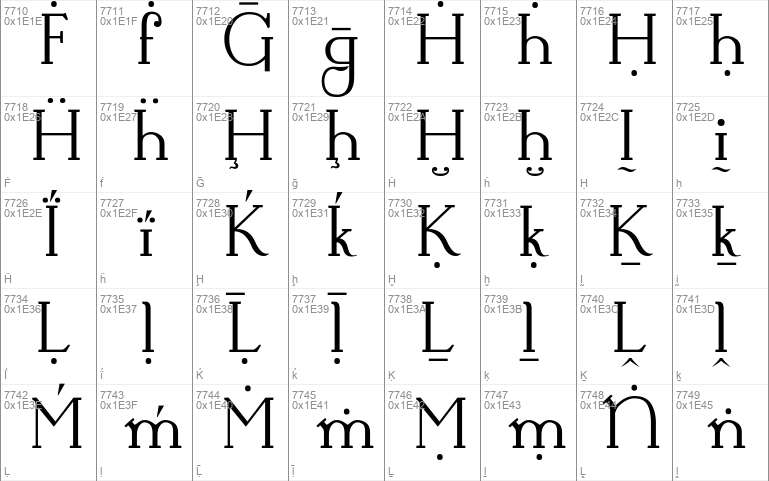
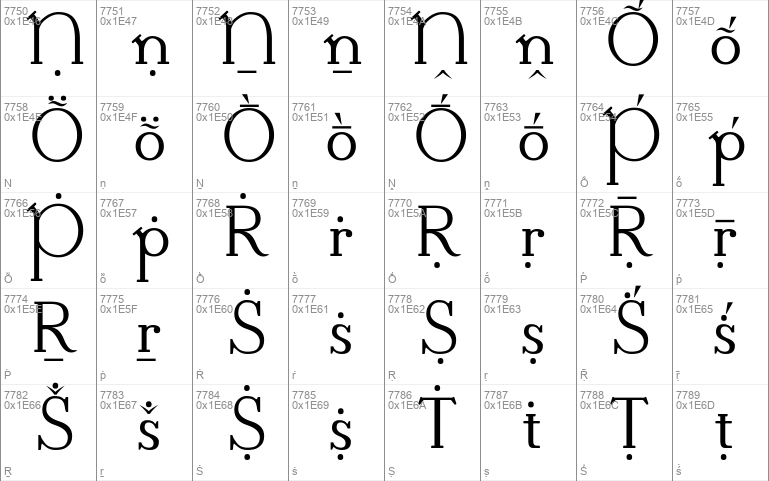
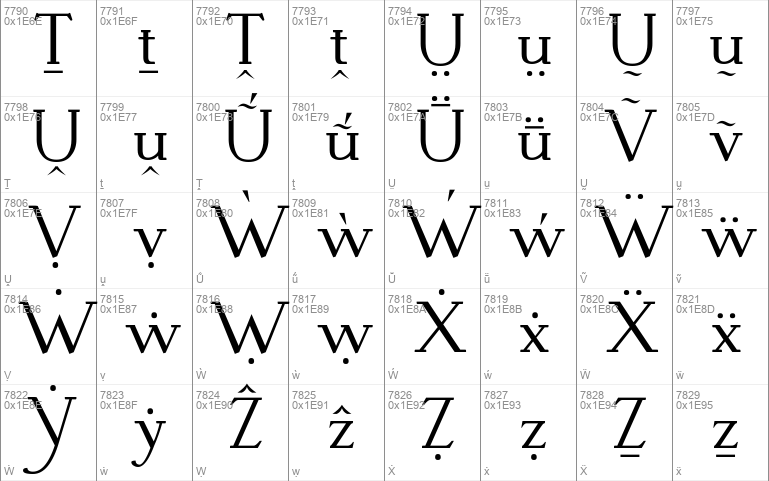
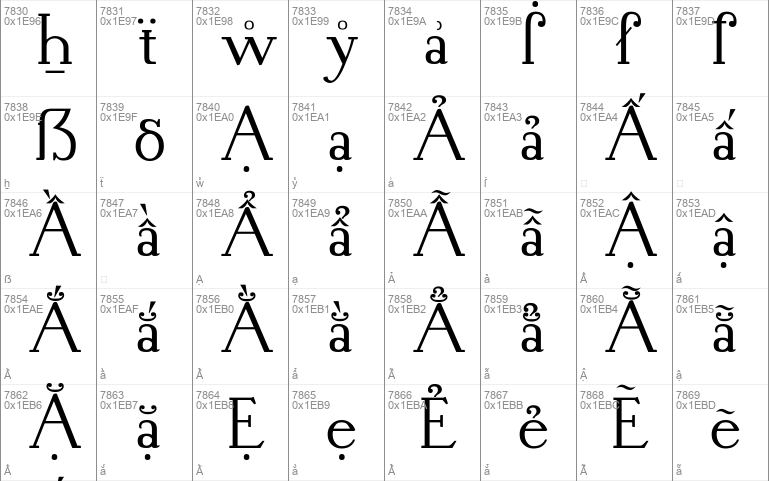
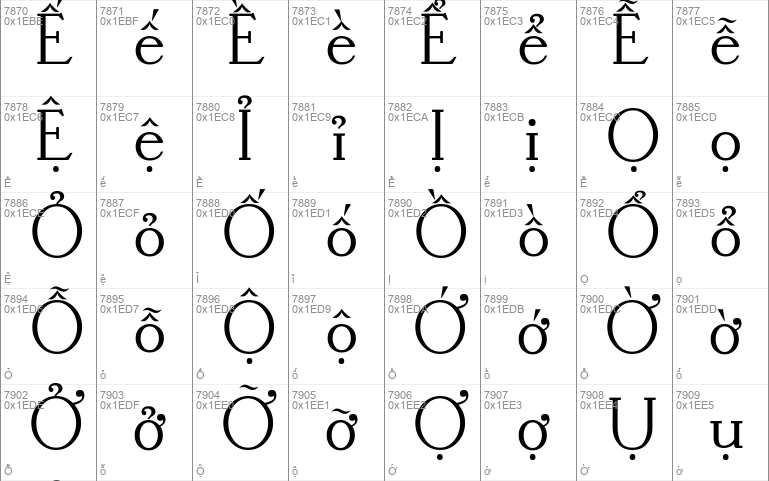
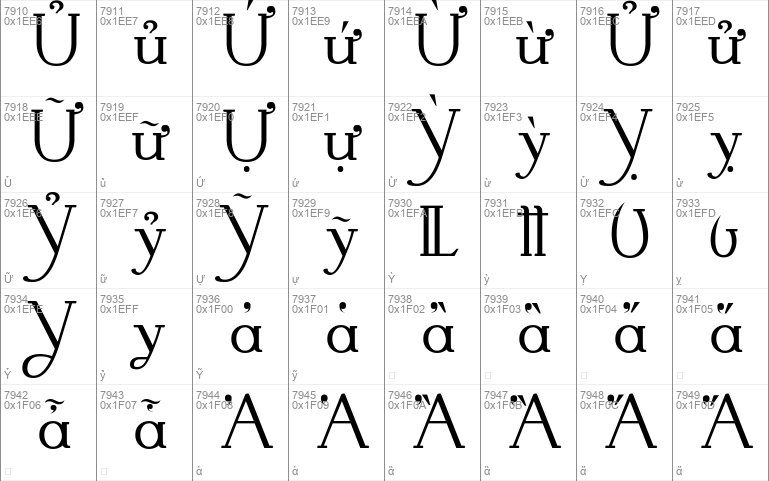
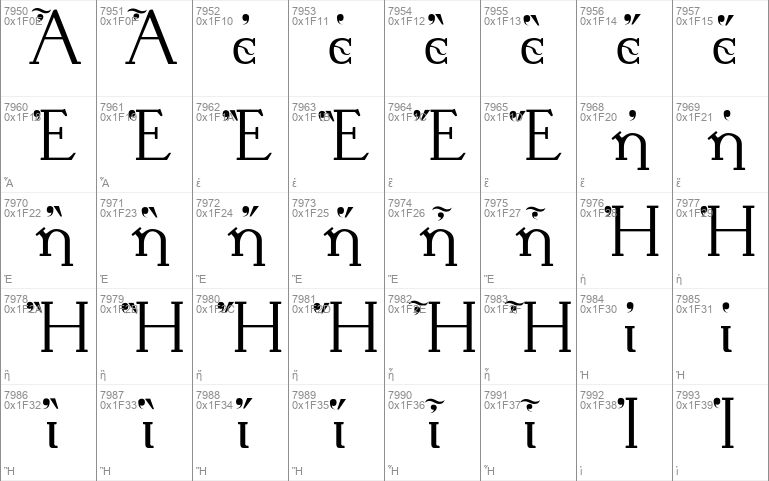
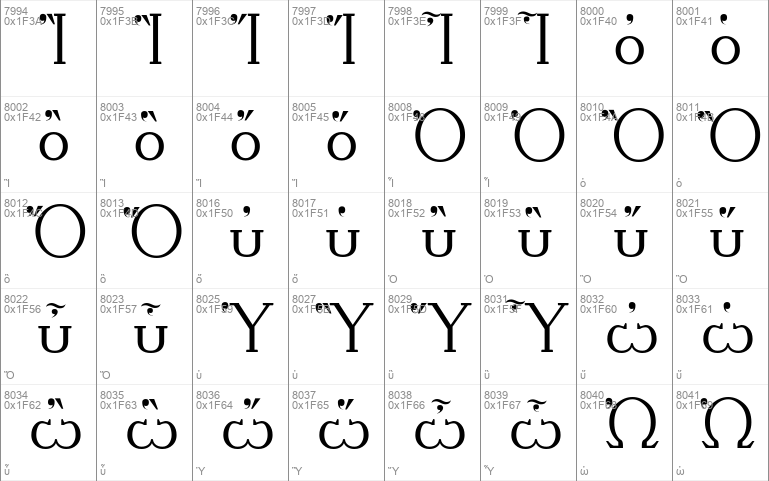
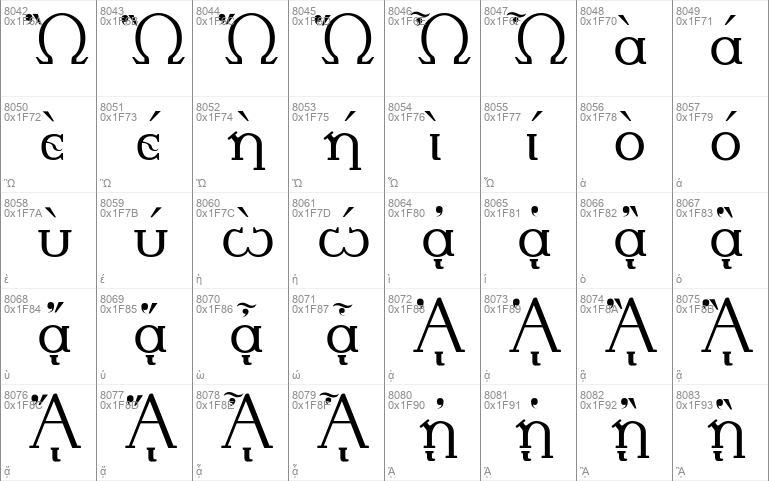
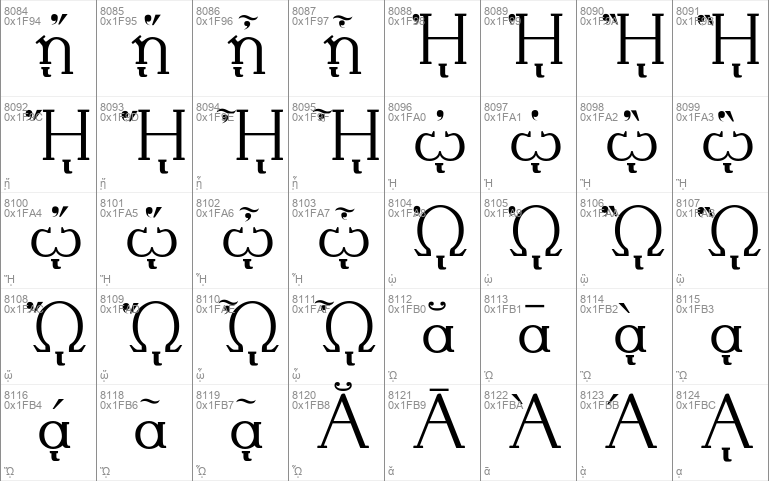
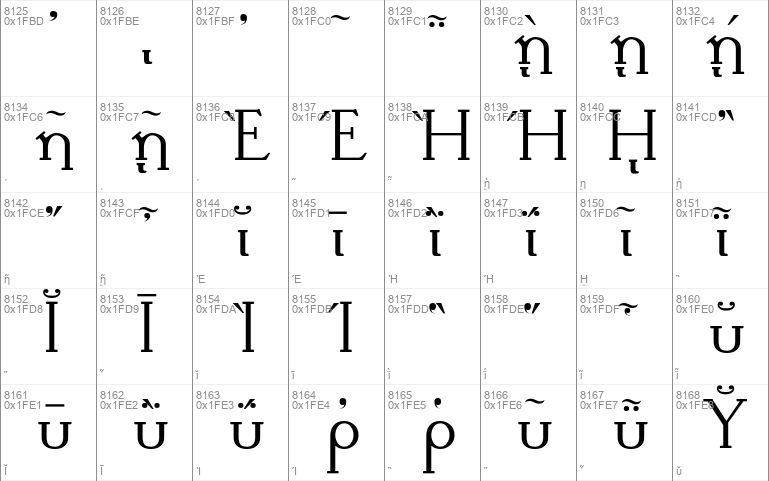
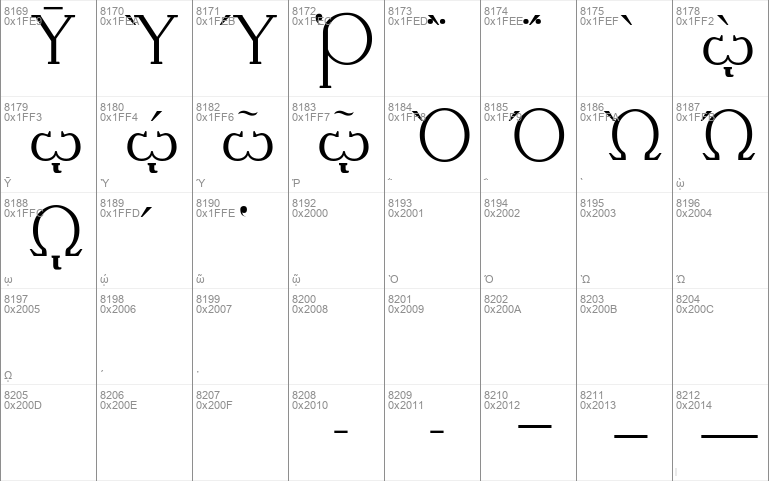
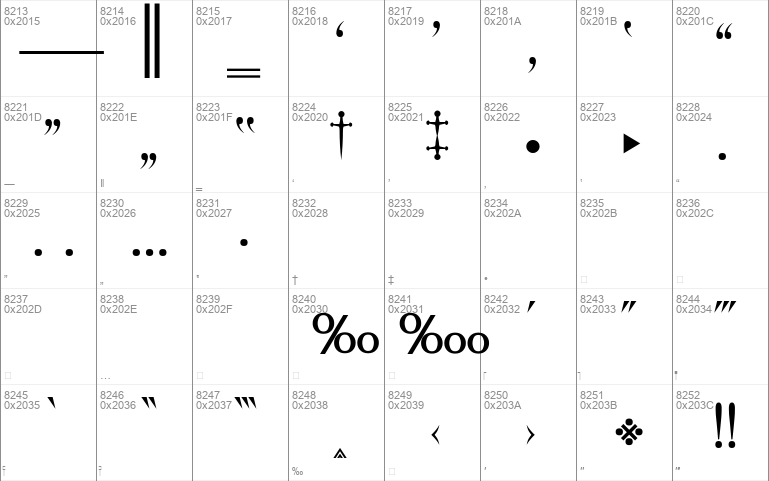
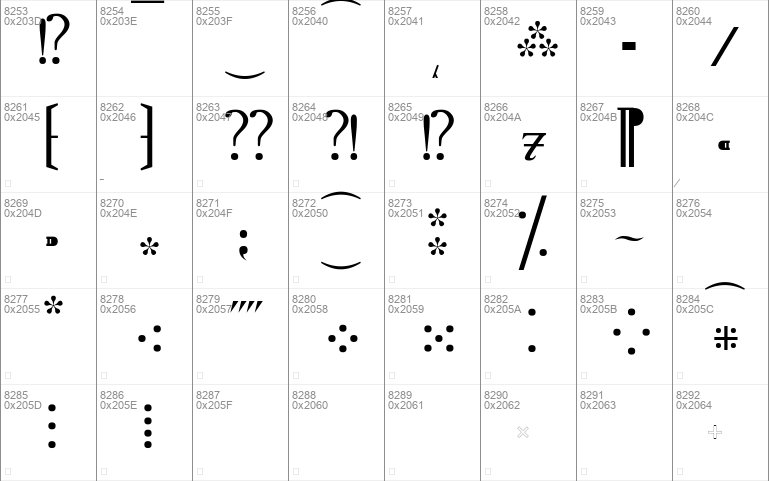
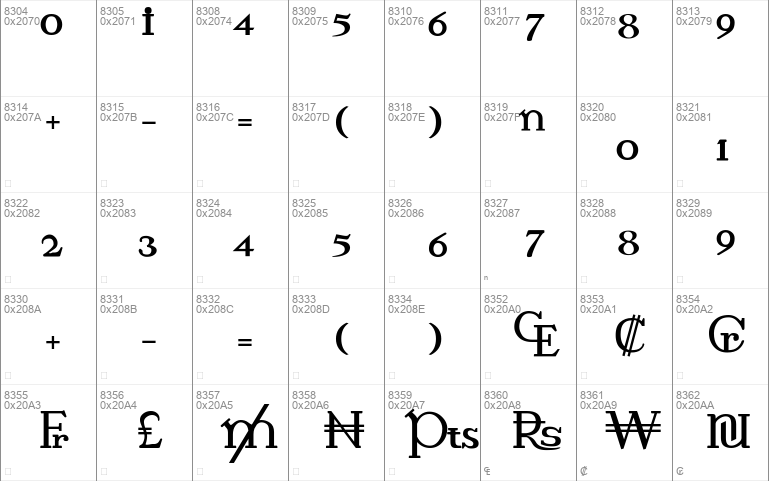
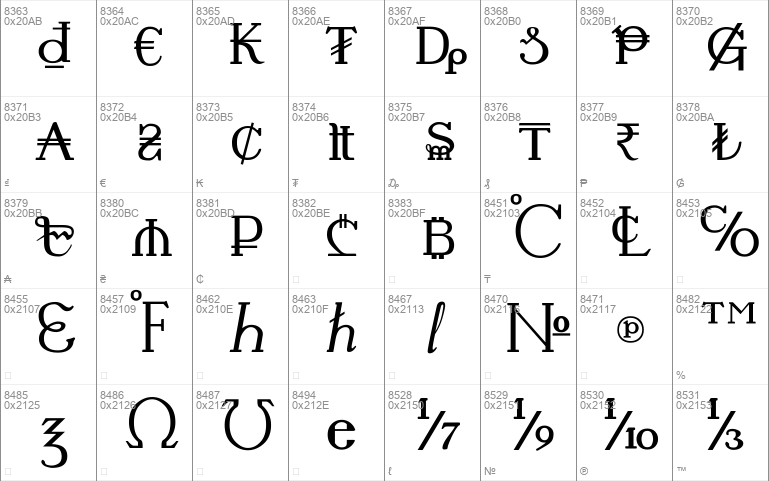
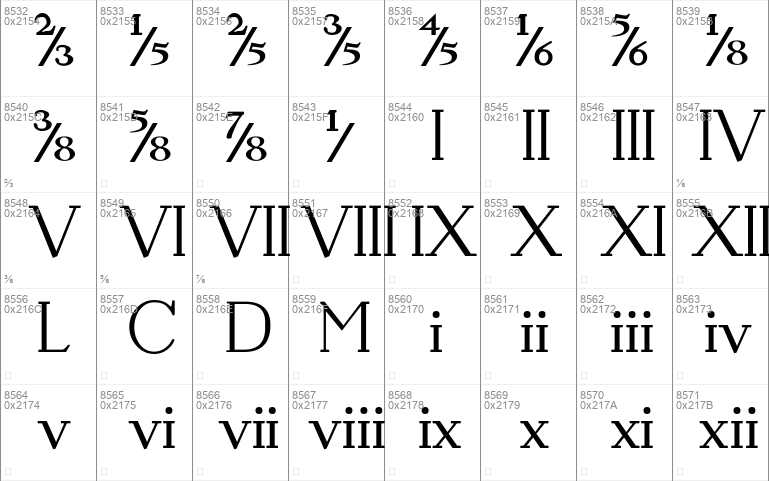
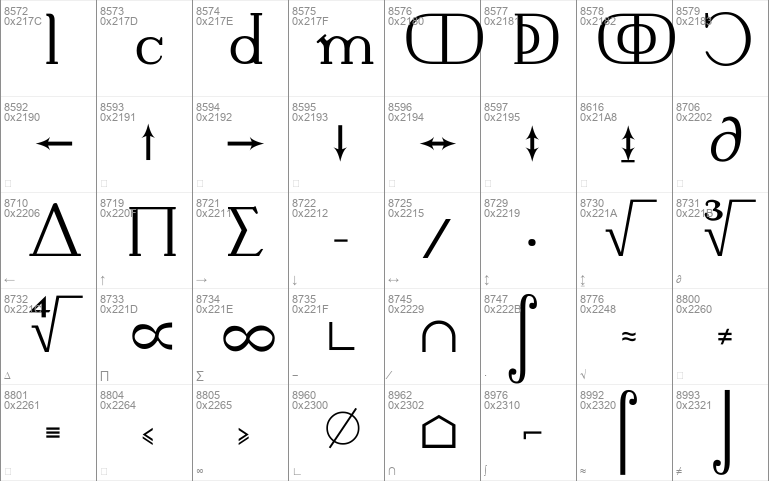
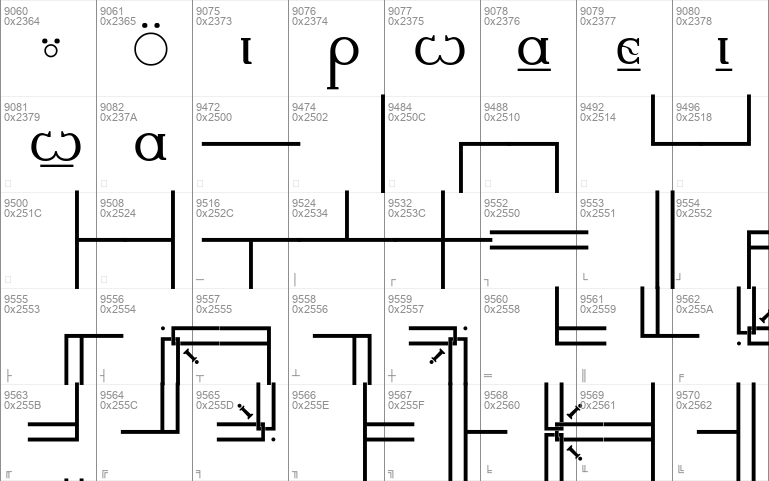
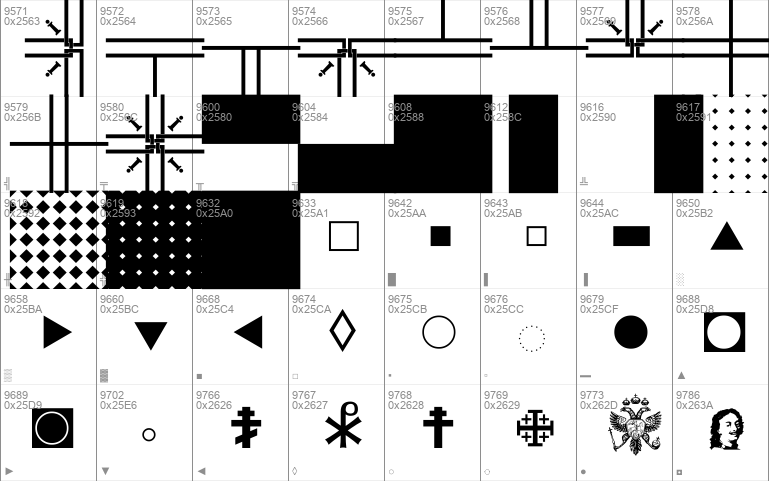
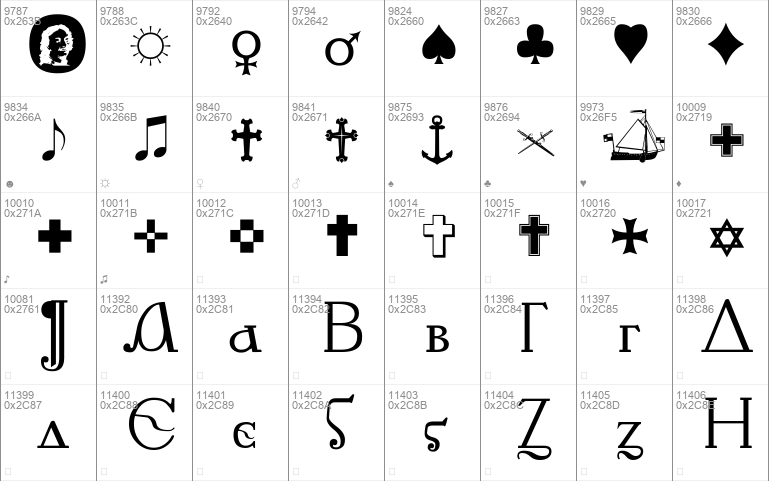
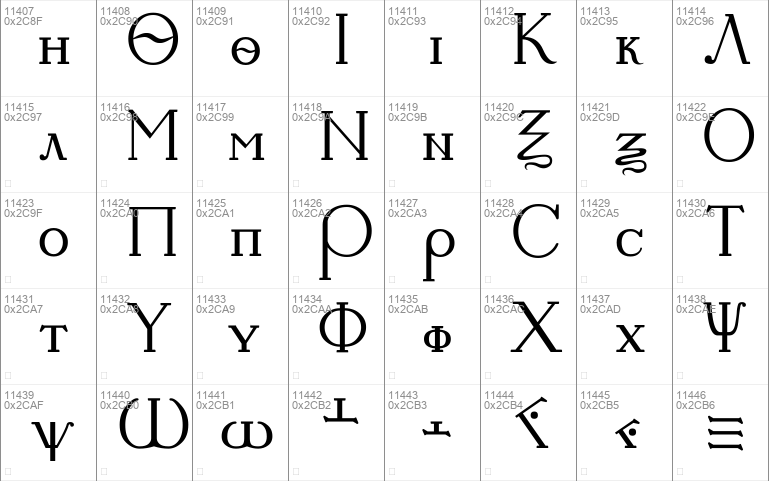
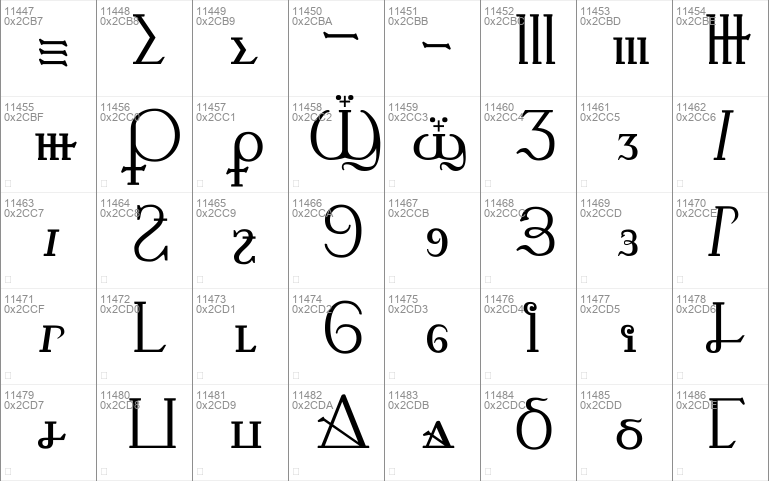
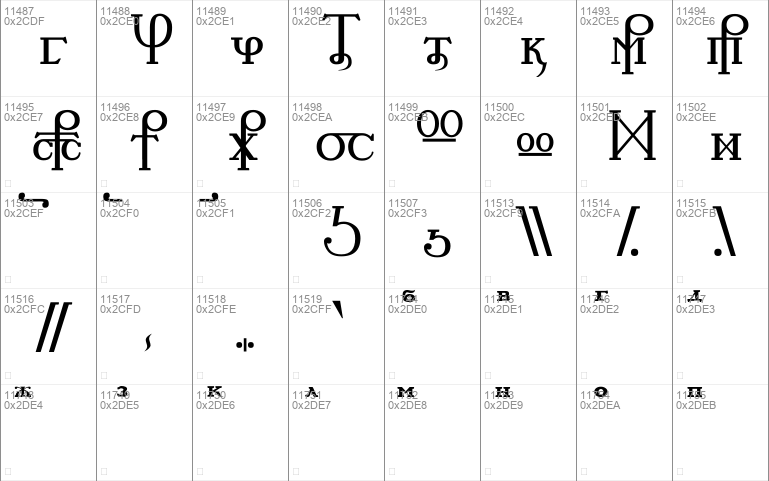
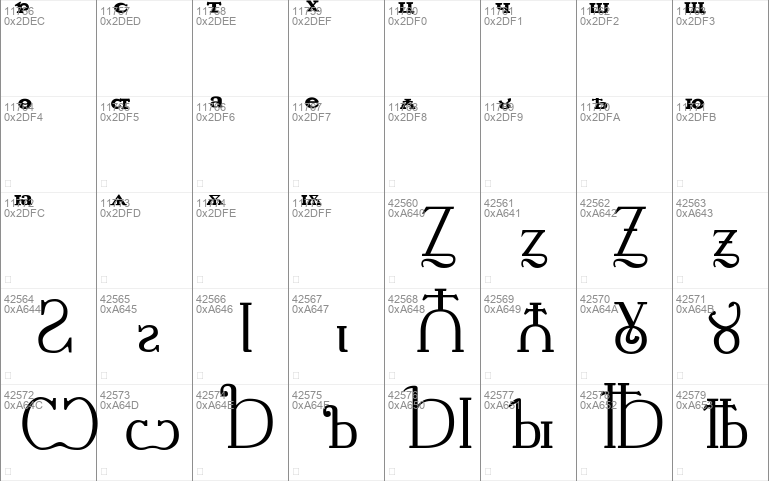
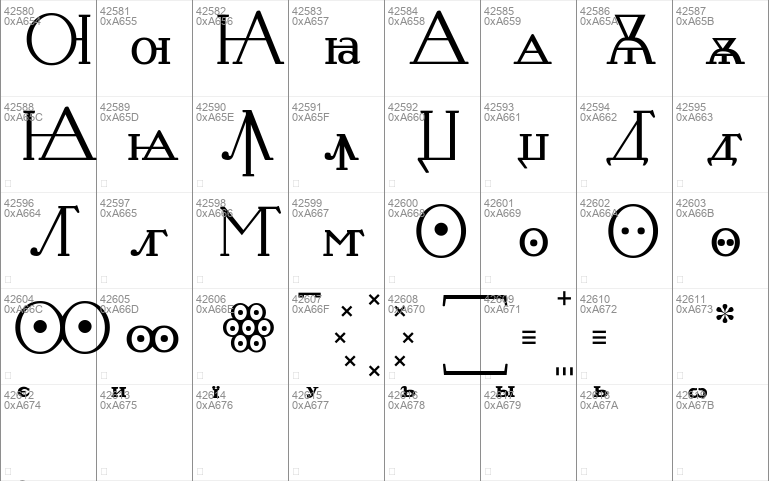
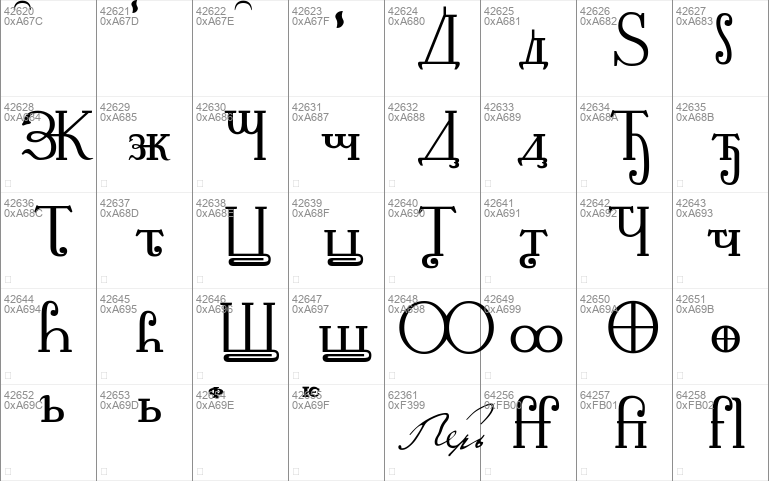

- Styles (1)
- Character Maps
- License


























































- Free for Personal Use
- Free for Commercial Use
- Modification Allowed
- Redistribution Allowed
Extended information
The current computer font based on so-called Civil (Grazhdanskiy) font was first introduced by Russian Tsar Peter I (Peter the Great) in 1807, at the same time with the Russian alphabet reform. Perhaps, it could have been rightfully called Petrovskiy (related to Peter) or Grazhdanskiy. (Grazhdanka is a well-established name in some Slavic Languages). However, the name Kuhlenbach is used in order to honour the unjustly forgotten man who had his finger in the new font creation.
This name was so firmly forgotten - sunken into oblivion, that the only trace is his surname found in some of the preserved historic documents. Kuhlenbach served as a military engineer at Peter the Great’s headquarters. The Tsar handed Kuhlenbach the sketches of the new font (which were obviously drawn by Tsar himself) and commissioned the latter to make the final designs of the letters. Later they were used in producing the first font variants for the printing press. According to the majority of researchers, some awkwardness of several letters can be attributed to the fact that Kuhlenbach had to follow the Tsar’s own handwriting in the sketches.
The font design rose to importance at the turn of the 16-17th centuries. The existing font in the Russian Empire did not meet the demands of the time any more. Peter I was undertaking revolutionary changes in many spheres of everyday life in the country. He desperately desired to catch up with the Enlightened Europe. As the 16th century Russia lacked its own contemporary font, suitable for printing secular literature, the Tsar wanted to find a compromise between an acquiring popularity Latin fashion and the old inconvenient alphabet. At that time the so-called Church Poluustav was being used in printing. After introducing the new font, the old one remained merely for printing Church literature.
The new font spread quickly and influenced not only Russian culture but the Slavic cultures in general. Virtually, all later arrivings of Cyrillic fonts became a consequent development of what was invented by Peter I and Kuhlenbach. Cyrillic fonts began to develop together with European fonts following common principles and linguistic laws.
In the font made by Kuhlenbach there was only the Cyrillic part. In the current computer font, Latin and Greek parts are added in an attempt to imagine how the letters of these languages could have looked if Kuhlenbach had been tasked to create these language parts as well. Besides, several various letters and symbols were added for the languages which the initial Cyrillic fonts lacked. These added languages are genetically connected as the Latin and Cyrillic and some other writing systems which emerged later, are based on the Greek alphabet.
Also, it is worth mentioning that the current computer font is by no means a precise scientific-historical reconstruction of the Civil font (due to the lack of opportunities of archival study), but the most possible true-to-life stylization.
Read more
The current computer font based on so-called Civil (Grazhdanskiy) font was first introduced by Russian Tsar Peter I (Peter the Great) in 1807, at the same time with the Russian alphabet reform. Perhaps, it could have been rightfully called Petrovskiy (related to Peter) or Grazhdanskiy. (Grazhdanka is a well-established name in some Slavic Languages). However, the name Kuhlenbach is used in order to honour the unjustly forgotten man who had his finger in the new font creation.
This name was so firmly forgotten - sunken into oblivion, that the only trace is his surname found in some of the preserved historic documents. Kuhlenbach served as a military engineer at Peter the Great’s headquarters. The Tsar handed Kuhlenbach the sketches of the new font (which were obviously drawn by Tsar himself) and commissioned the latter to make the final designs of the letters. Later they were used in producing the first font variants for the printing press. According to the majority of researchers, some awkwardness of several letters can be attributed to the fact that Kuhlenbach had to follow the Tsar’s own handwriting in the sketches.
The font design rose to importance at the turn of the 16-17th centuries. The existing font in the Russian Empire did not meet the demands of the time any more. Peter I was undertaking revolutionary changes in many spheres of everyday life in the country. He desperately desired to catch up with the Enlightened Europe. As the 16th century Russia lacked its own contemporary font, suitable for printing secular literature, the Tsar wanted to find a compromise between an acquiring popularity Latin fashion and the old inconvenient alphabet. At that time the so-called Church Poluustav was being used in printing. After introducing the new font, the old one remained merely for printing Church literature.
The new font spread quickly and influenced not only Russian culture but the Slavic cultures in general. Virtually, all later arrivings of Cyrillic fonts became a consequent development of what was invented by Peter I and Kuhlenbach. Cyrillic fonts began to develop together with European fonts following common principles and linguistic laws.
In the font made by Kuhlenbach there was only the Cyrillic part. In the current computer font, Latin and Greek parts are added in an attempt to imagine how the letters of these languages could have looked if Kuhlenbach had been tasked to create these language parts as well. Besides, several various letters and symbols were added for the languages which the initial Cyrillic fonts lacked. These added languages are genetically connected as the Latin and Cyrillic and some other writing systems which emerged later, are based on the Greek alphabet.
Also, it is worth mentioning that the current computer font is by no means a precise scientific-historical reconstruction of the Civil font (due to the lack of opportunities of archival study), but the most possible true-to-life stylization.
Copyright (c)
with Reserved Font Name
Copyright (c)
with Reserved Font Name
Copyright (c)
This Font Software is licensed under the SIL Open Font License, Version 1.1.
This license is copied below, and is also available with a FAQ at:
http://scripts.sil.org/OFL
-----------------------------------------------------------
SIL OPEN FONT LICENSE Version 1.1 - 26 February 2007
-----------------------------------------------------------
PREAMBLE
The goals of the Open Font License (OFL) are to stimulate worldwide
development of collaborative font projects, to support the font creation
efforts of academic and linguistic communities, and to provide a free and
open framework in which fonts may be shared and improved in partnership
with others.
The OFL allows the licensed fonts to be used, studied, modified and
redistributed freely as long as they are not sold by themselves. The
fonts, including any derivative works, can be bundled, embedded,
redistributed and/or sold with any software provided that any reserved
names are not used by derivative works. The fonts and derivatives,
however, cannot be released under any other type of license. The
requirement for fonts to remain under this license does not apply
to any document created using the fonts or their derivatives.
DEFINITIONS
"Font Software" refers to the set of files released by the Copyright
Holder(s) under this license and clearly marked as such. This may
include source files, build scripts and documentation.
"Reserved Font Name" refers to any names specified as such after the
copyright statement(s).
"Original Version" refers to the collection of Font Software components as
distributed by the Copyright Holder(s).
"Modified Version" refers to any derivative made by adding to, deleting,
or substituting -- in part or in whole -- any of the components of the
Original Version, by changing formats or by porting the Font Software to a
new environment.
"Author" refers to any designer, engineer, programmer, technical
writer or other person who contributed to the Font Software.
PERMISSION & CONDITIONS
Permission is hereby granted, free of charge, to any person obtaining
a copy of the Font Software, to use, study, copy, merge, embed, modify,
redistribute, and sell modified and unmodified copies of the Font
Software, subject to the following conditions:
1) Neither the Font Software nor any of its individual components,
in Original or Modified Versions, may be sold by itself.
2) Original or Modified Versions of the Font Software may be bundled,
redistributed and/or sold with any software, provided that each copy
contains the above copyright notice and this license. These can be
included either as stand-alone text files, human-readable headers or
in the appropriate machine-readable metadata fields within text or
binary files as long as those fields can be easily viewed by the user.
3) No Modified Version of the Font Software may use the Reserved Font
Name(s) unless explicit written permission is granted by the corresponding
Copyright Holder. This restriction only applies to the primary font name as
presented to the users.
4) The name(s) of the Copyright Holder(s) or the Author(s) of the Font
Software shall not be used to promote, endorse or advertise any
Modified Version, except to acknowledge the contribution(s) of the
Copyright Holder(s) and the Author(s) or with their explicit written
permission.
5) The Font Software, modified or unmodified, in part or in whole,
must be distributed entirely under this license, and must not be
distributed under any other license. The requirement for fonts to
remain under this license does not apply to any document created
using the Font Software.
TERMINATION
This license becomes null and void if any of the above conditions are
not met.
DISCLAIMER
THE FONT SOFTWARE IS PROVIDED "AS IS", WITHOUT WARRANTY OF ANY KIND,
EXPRESS OR IMPLIED, INCLUDING BUT NOT LIMITED TO ANY WARRANTIES OF
MERCHANTABILITY, FITNESS FOR A PARTICULAR PURPOSE AND NONINFRINGEMENT
OF COPYRIGHT, PATENT, TRADEMARK, OR OTHER RIGHT. IN NO EVENT SHALL THE
COPYRIGHT HOLDER BE LIABLE FOR ANY CLAIM, DAMAGES OR OTHER LIABILITY,
INCLUDING ANY GENERAL, SPECIAL, INDIRECT, INCIDENTAL, OR CONSEQUENTIAL
DAMAGES, WHETHER IN AN ACTION OF CONTRACT, TORT OR OTHERWISE, ARISING
FROM, OUT OF THE USE OR INABILITY TO USE THE FONT SOFTWARE OR FROM
OTHER DEALINGS IN THE FONT SOFTWARE.
license: SIL Open Font License (OFL)
link: https://www.fontspace.com/kuhlenbach-font-f55810



Comments